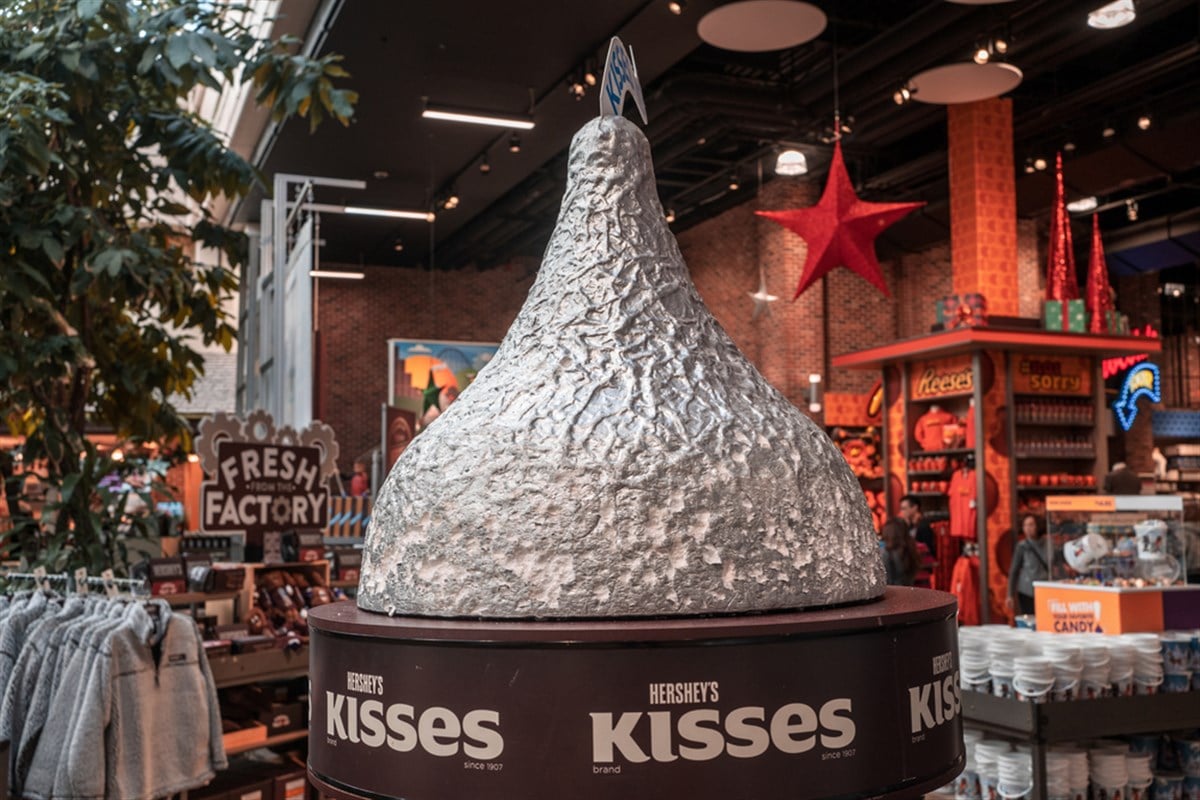
Because the Federal Reserve (the Fed) has announced potential interest rate cuts for this year, an expectation priced in for March is now being pushed as far back as May or June, according to the FedWatch tool at the CME Group Inc. (NASDAQ: CME). A rising level of uncertainty may push the fundamentals of stocks to be the primary concern when selecting future investments.
Names that fit this criteria of bullish and solid fundamentals, the ones that will likely be dependable wealth compounders in the next decade, include household names like Hershey Company (NYSE: HSY), other consumer discretionary favorites like Ulta Beauty Inc. (NASDAQ: ULTA) and even more abstract but strong macro plays like Equity Residential (NYSE: EQR).
What to look for
First, it's a game of business moats, which is fancy for "brand loyalty" and "penetration."
Hershey's snacks are not limited to its famous chocolate. You can find them at virtually every supermarket and convenience store or on the shelves of thousands of households in the United States and globally. If you gave someone $38.8 billion in cash (Hershey's market capitalization), it would be nearly impossible to replicate what this brand has done.
Similarly, beauty products are likely to never go out of favor since Ulta's consumer base will still need to keep up with skincare regardless of whether the economy booms or busts.
According to its annual reports, this business has achieved a 90% retention rate from its membership base.
Last but not least, as long as people need a place to live and create demand for residential property, real estate investment trusts (REITs) like Equity Residential benefit from this basic population need.
When companies achieve these status levels and steady demand
from a loyal customer base, financials come in place, particularly starting with gross margin rates. If Ulta and Hershey have the brand penetration and loyalty they are perceived to have, it should come with some pricing power and high margins.
Get down to numbers
On a gross margin basis, Ulta generates an undisputed rate of over 40% to be head and shoulders above the rest of the industry, proving its pricing power is more than present. Hershey's gross margin is equally impressive at 45%; pricing power and brand loyalty allow management to invest aggressively in further growth.
Because real estate doesn't operate on gross margins as retail companies do, you can look to the health of their cash-flowing properties as a shareholder. Because Equity Residential can afford to pay its shareholders an annual dividend yield of 4.5%, analysts feel comfortable projecting a price target of $66.01 a share, or a 10.1% upside from today's prices.
These stocks offer you the stability found in names held by the Consumer Staples Select Sector SPDR Fund (NYSEARCA: XLP), all the while exposing yourself to the growth in stocks inside the Consumer Discretionary Select Sector SPDR Fund (NYSEARCA: XLY).
Each dollar you invest in Ulta and Hershey is set to compound (in the long-term) by over 20% on average.
While less aggressive of a growth play, Equity Residential offers a stable dividend and exposure to the appreciative properties of real estate, which still works whether interest rates are high or low.





